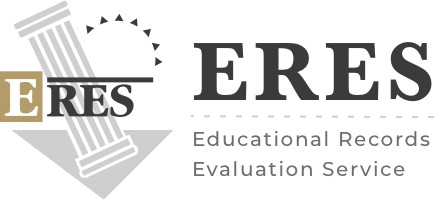Blog
From Abroad to Academic Success: Insights for International Students in the U.S

Are you dreaming of studying in the USA? International students have constituted an increasing population in American higher education in the past few decades.
The US has reigned supreme as the world's most popular study-abroad destination for decades because of abundant opportunities and unmatched career growth.
According to CNBC, 41% of employers in the US consider offering a higher salary to students who have studied abroad. However, the journey from abroad to academics is not like smooth sailing. It comes with its own set of challenges and adjustments.
So, whether you’re preparing to study abroad or already on campus, these insights will uncover the mysteries of studying abroad in the U.S. and offer invaluable tips to make the right decision for your fulfilling academic journey.
International Student’s Handbook: Preparing Before Arrival
A. Researching Universities and Programs
Start your abroad academic journey by identifying your goal. Look for top universities and programs that align with your interests and professional goals. Consider certain prominent factors like –
- Availability of Resources
- Location & Environment
- Accreditation and Reputation
- Support Services like Induction or Orientation programs
TIP: In the USA, ‘university’ and ‘college’ are used interchangeably. Mostly larger universities with different schools or colleges or different areas of study are called - College of Engineering, and School of Business.
B. Understanding Admission Requirements
The admission process in US universities can be confusing and extensive as different universities follow different approaches to admit a foreign student. For instance, certain admission policies would include-
- Standardized test scores for TOEFL, SAT, IELTS, GRE, or GMAT
- Essay Writing
- Student’s high school course of study
- High school Grade Point Average (GPA)
- Participation in extracurricular activities
- Or/and Personal Interview
NOTE: University students who are pursuing a Bachelor’s degree are called “undergraduates.” Students who are pursuing a Master’s or Doctoral degree are called “graduate students.”
C. Financial Planning
Financing your abroad education requires meticulous planning and resourcefulness. Consider the cost of tuition fees, supplies, food, books and housing, transportation, and other personal expenses.
The average tuition fee ranges around $50,000 annually for top colleges in the US. However, it may vary from time to time. Visit the website of the respective university for solid financial planning.
Moreover, you can also explore options for grants, scholarships, or financial aid that help you pay for other related expenses, such as a computer and dependent care.
D. Credential Evaluation
Credential evaluation is the most integral part of the US education system. When you apply to any university or college, you might be asked to compare your academic records earned in your home country in equivalence to the US.
Here are certain questions you may have -:
How do I evaluate my certificate in the USA
You can hire ERES and choose the best credential service evaluation expert to analyze your academic and professional transcripts, certifications, and degrees and determine US equivalents within a specific time.
Which degree is best for international students in the USA?
Determining the best course to study in the US is quite subjective. It depends on aspirations and interests. However international students majorly prefer Computer science, Business Administration, Engineering, Biology & Mathematics.
Which credential evaluation service is the best?
While choosing the best credential evaluation service company, consider these factors -:
- Accreditation and Recognition from ACES (National Association of Credential Evaluation Services) or AICE (Association of International Credential Evaluators)
- Turnaround & processing time
- Types of Evaluations Offered
- Compare costs and fees
- Consider reviews and testimonials
Academic Strategies To Implement for Long-Term Success
A. Time Management and Study Skills
Develop effective time management skills and techniques. Use a digital planner to balance academic coursework, extracurricular activities, and study sessions. Identify your tasks based on importance and deadline, break down larger assignments into smaller and practice study methods like group study sessions, or the Pomodoro technique to reinforce learning.
B. Engaging with Professors and Peers
Take advantage of Professors, peers, and academic support services offered by your university. Reach out to your professors during office hours to ask questions, clarify your doubts, or discuss your academic interests in detail. Stay connected with peers for valuable mentorship.
C. Utilizing Campus Resources
Leverage campus resources to enhance your learning and academic performance. Visit libraries to explore academic journals and books or if you want quiet study space. Pay a visit to writing centers to study research papers from respective subjects, essays, or any writing assistance. Never miss out on academic workshops to bridge gaps in knowledge, boost collaboration, and gain exposure to new perspectives and methodologies.
Social and Cultural Adaptation To Make a Difference
A. Embracing Cultural Differences
Embrace cultural diversity on campus by participating in multicultural events, intercultural workshops, local community activities, or international festival events. Be open-minded and take some time to understand the cultural values, norms, traditions, languages, and code of conduct of the US to foster cross-cultural understanding.
B. Building a Support Network
Start networking with your fellow international students and peers to thrive in your academic and professional pursuits. Join student organizations, and connect with other international students who are going through similar experiences. This serves as a pathway to extend your networking far beyond professional connections and helps you understand how things work in the US job market.
C. Managing Homesickness and Stress
According to the American College Health Association (ACHA), 77% of students experienced psychological distress, 54% experienced loneliness, and 30% exhibited suicidal behavior. To manage homesickness and mental inability, stay socially connected in your study country. Talk to our family, friends, or any personal support networks. Practice self-care and join support groups so you can meet people with the same experiences.
Conclusion
To sum up, the success of international students in the US is a testament to their patience, perseverance, and resilience to change and opportunity that contribute significantly to overall career advancement.
From navigating airports to settling into campus life and transcending borders and cultures, abroad study is not like a walk in the park. And, at ERES, we understand and therefore stand still in all weather to help you live your dreams, brighten your career, and bring endless job opportunities your way.
Keep exploring, learning, and growing – the world is yours to conquer. And don’t forget we’re here to help you in need, anytime, anywhere.
Start Now
ERES
Educational Records Evaluation Service helps Non-US educated individuals to receive their US equivalences with our credential evaluation reports.
Services
Contact us
Tue - Fri: 10:00 to 16:00 ( PST )
4773 Mangels Blvd, Fairfield, CA 94534, USA.
© 2025 Educational Records Evaluation Service. All rights reserved.











